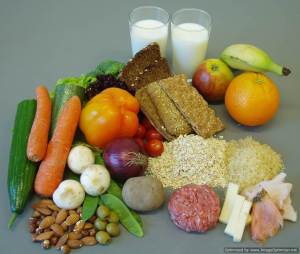Are you trying to lose weight but find yourself constantly battling hunger pains? You may not be getting enough fiber in your diet. Fiber helps you stay full longer, which helps you to cut back on extra calories by resisting the urge to snack or overeat.
Fiber is a complex carbohydrate that keeps blood sugar levels steady during the digestion process. Without the spike in blood sugar, you feel full longer and won’t be tempted to snack between meals.
In addition to long-term weight loss and weight management, fiber can also help lower cholesterol levels, improve digestion, and reduce your risk for diabetes and heart disease.
Most individuals need between 20 and 35 grams of fiber per day. If your current diet is low in fiber, try adding in fruits, vegetables and switching to whole-grains. Gradually increase your fiber intake to avoid unpleasant side effects such as bloating, gas and diarrhea.
You can naturally add more fiber to your diet by making smart food choices. Start your day off with oatmeal or whole-grain cereal topped off with fruit. When you’re hungry, snack on Greek yogurt and fresh fruits. The protein and fiber combination will keep you full until your next meal.
Simple substitutions can make a big difference, too. Swap white rice for brown rice and replace white pasta with whole-wheat pasta. Incorporate fresh or sautéed vegetables in these dishes for extra nutrients and fiber.
Not sure about the best ways to add fiber to your diet? OPTIFAST is medical weight loss program that makes it easy for Denville patients to naturally increase their fiber intake. Unlike fad diets, OPTIFAST is a balanced medical weight loss program that incorporates balanced nutrition, including fiber, along with lifestyle counseling and support to help Denville patients achieve long-term medical weight loss.
If you find yourself frustrated with fad diets and wondering how to lose weight and keep it off, adding more fiber to your diet through a weight loss program like OPTIFAST can help you take off the pounds permanently.








